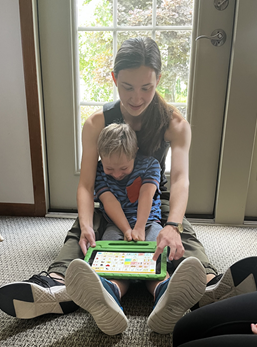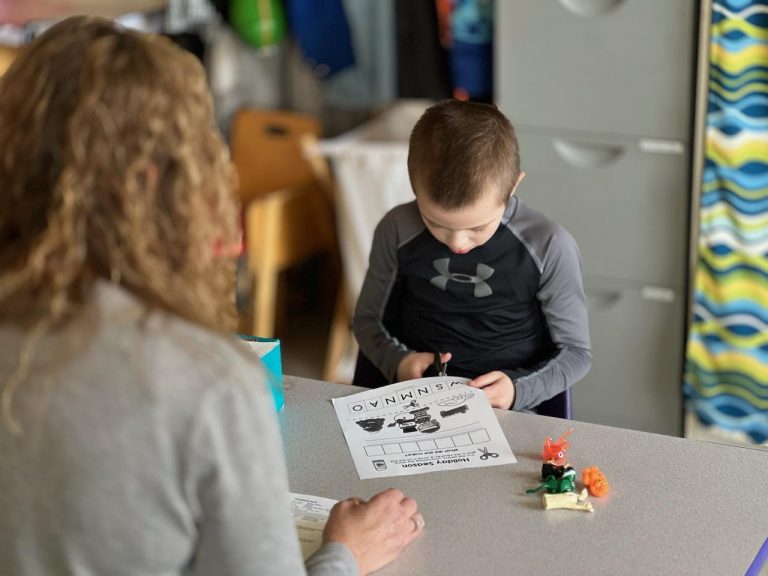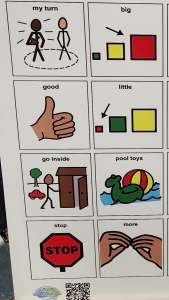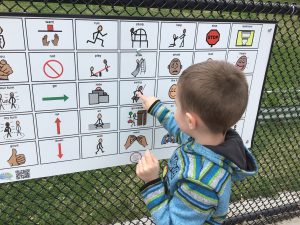
If your child is currently receiving speech-language therapy, it’s natural to want quick results. As parents, seeing our children struggle with communication can be frustrating and even heart-wrenching. We want to help them thrive, and when progress feels slow or difficult to see, it’s easy to wonder if therapy is working or if something more could be done. You’re not alone in these feelings – many families share similar concerns.
In this post, we’ll explore some common frustrations, desires, and fears families experience around speech therapy and provide some encouragement for the journey.
Frustration: “We’re Not Seeing Noticeable Progress”
It can be incredibly tough when you feel like therapy isn’t moving fast enough or that the improvements are hard to see. You might find yourself thinking:
“Why isn’t my child talking more?”
“Other kids seem to be progressing faster—what are we doing wrong?”
“I’m putting in the time and effort; why aren’t we seeing results?”
These thoughts are completely normal. But it’s important to remember that speech-language progress looks different for every child. Just like learning to walk or mastering a new skill, some children move forward in noticeable leaps, while others progress in more subtle ways.
What You Can Do:
- Celebrate the small wins: Progress may come in tiny steps, but those little steps add up! Pay attention to the small changes, whether it’s your child attempting a new sound, responding with more eye contact, or showing more willingness to try.
- Ask for updates: Don’t hesitate to speak with your speech therapist about your concerns. They can share progress that might not be immediately obvious to you and provide reassurance about the plan ahead.
Desire: “We Want Quick, Visible Improvement”
Of course, what every parent really wants is to see their child making noticeable strides in their speech and language development. There’s a desire to reach milestones quickly — we dream of the day our child can communicate more clearly, participate in conversations, and thrive socially.
While it’s understandable to hope for quick improvement, speech therapy is a process that takes time. The good news? Progress will come. It’s just important to recognize that improvement isn’t always immediate. Much like planting a seed, it takes consistent nurturing before you begin to see the growth above the surface.
What You Can Do:
- Trust the process: Therapy often starts with building foundational skills that may not seem exciting but are crucial for future gains. These building blocks take time but pave the way for bigger milestones.
- Practice at home: Your speech therapist will likely suggest activities to do at home. Incorporating these into your daily routine can help reinforce therapy goals and may lead to more noticeable progress over time.
Fear: “What If Therapy Isn’t Working or Progress Has Stalled?”
One of the biggest fears families face is the worry that therapy isn’t effective. You might wonder if you’re doing everything you can to support your child’s communication journey or if you need to try something new.
It’s important to remember that progress can sometimes feel like it’s stalling, but that doesn’t mean therapy isn’t working. Much like climbing a mountain, sometimes there are plateaus where it seems like nothing is happening, but in reality, important growth is taking place behind the scenes.
What You Can Do:
- Stay in communication with your therapist: If you’re worried about a lack of progress, have an open discussion with your child’s therapist. They can explain the current stage of therapy, review the goals, and adjust strategies if needed.
- Stay the course: Therapy isn’t a straight line. There will be ups and downs, fast weeks, and slow ones. Patience is key in the therapy journey, and your ongoing support is an essential part of your child’s success.
How to Stay Positive During the Process
While it’s perfectly natural to feel frustrated, it’s also important to acknowledge how far you and your child have come. Here are a few tips for maintaining a positive mindset during this journey:
- Set Realistic Expectations: Progress in speech therapy is highly individual. Comparing your child to others might increase your frustration. Focus on your child’s unique journey.
- Be Patient and Consistent: Progress may not always be visible week to week, but therapy takes time and consistent effort. Stick with the program, and trust that the hard work will pay off.
- Celebrate All Victories—Big or Small: Each small step forward is worth celebrating. Whether it’s a new sound, a clearer word, or better engagement with others, these victories are meaningful and show that progress is happening.
You’re Not Alone in This Journey
Feeling frustrated with slow progress, wishing for quicker results, or fearing that therapy may not be working is completely understandable. The key is to remember that speech and language development takes time, and every child progresses at their own pace. Therapy is a process that, while sometimes slow, is moving your child closer to their communication goals.
Stay encouraged, keep the lines of communication open with your therapist, and celebrate the small steps. These small milestones will ultimately lead to big breakthroughs.
You’ve got this, and so does your child!









